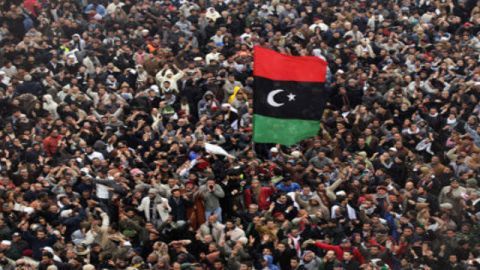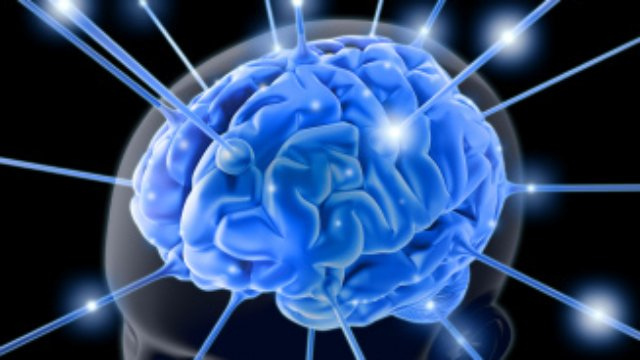The Universal Appeal of the Arab Spring

As a resident of Concord Massachusetts, where American revolutionaries first shot back at their British oppressors, its impossible to watch what’s going on in Libya and Syria and Egypt and Yemen and not feel a connection with the people who have risked their lives to stand up for a better life. We are told that their reasons are poverty, fear, and repression. But if an observer from afar might dare suggest a more profound motivation, to which we all can relate; Deep down inside, what the Arab Spring is really about is the universal desire of people everywhere to feel in control of their own lives.
I first learned about the importance of control in the context of the psychology of the way we perceive risks. The more control we have over a risk, the less afraid we are, and less control we have, the more afraid we are. An example; After the 9/11 attacks when airplanes full of people were used as bombs, more Americans chose to drive rather than fly. Many knew you’re far more likely to be hurt or killed driving than flying, but driving offered the reassuring feeling of control.
The desire…the need…for control is everywhere, not just in dealing with risk. Why do we predict the future in everything from our books and movies to our religions? To give ourselves a reassuring sense of control over the scary uncertainty of what lies ahead. Why do want our views on any of the issues of the day – the economy, climate change, immigration – to prevail? So our view…and our group’s view, if enough of us hold that view…prevails, and things will go the way we want them to. That puts in control. Why do we want our political party to win? So it…and by extension we…will be in charge of making the decisions…we’ll be in control. And why do we want a government that is of and by and for the people, here, or in the countries of the Middle East, or anywhere? Because government controls some aspects of our lives, and it feels better if we have at least some control over that government.
On Monday President Obama called, again, for a democratic post-Qaddafi Libya. Anybody who celebrates democracy as a preferred form of government (or as Churchill said “the worst form of government, except for all those other forms that have been tried”), is really extolling the psychological motivation for control. As did the founders of America, as did the protestors in Poland and Hungary and other now ex-Soviet countries, or the guy in front of the tank in Tiananmen Square, or all those purple fingered first-time voters in Iraq or the people of Southern Sudan, or the revolutionaries in Libya and Egypt and other Middle Eastern countries, people everywhere want a say in how their country is run, because that means a say in how their LIFE is going. They want freedom. They want hope. Think about what that means, underneath. A say in how the country is run, a share of the power…that means control. Freedom, and hope, are what you can only feel when you have at least some control over your life. Control over his own life is precisely what Mohammed Bouazizzi did NOT feel when a municipal officer confiscated his meager vendor’s wares, and humiliated him, on a Tunisian street in January, quite literally the spark to the fires we are now seeing across the Middle East.
Obama also said “An ocean divides us, but we are joined in the basic human longing for freedom, for justice and for dignity.” For control. Why is this desire for control so universal? It probably gets back to the psychology of the way we judge and respond to risk. That’s about survival. So is control; over your career, or how your government works, or whose tribe/party/religion/ideology holds sway in the greater society, or what the future holds. The more you feel you have some influence over how things are going, and how they’re going to turn out, the safer you feel. In terms of evolutionary psychology, it makes complete sense that the human animal would have an innate desire for control. Control helps you survive.
Think about all the examples of what people do in pursuit of control.
— People who are repressed, revolt. (Egypt, Libya, Syria)
— People who feel like their government has too much control over their lives, lash out against big government. (the Tea Party),
— People are worried about crime buy guns.
— People worried about terrorism buy plastic and duct tape to seal off their houses from biological or chemical weapons. (You may have laughed, but 90 million Americans bought the plastic and duct tape recommended by the Department of Homeland Security as a precaution in case of biological attack),
— People are worried about death and where you go when you die adopt the reassuring answers, and prescriptions for how to live in order to take control of where they will spend eternity, offered by religion.
The revolutions in the Middle East are, of course, each unique in may ways, and each could still go many ways. The Egyptians who overthrew their government, for example, are worried they could end up with a new government but still not much control (as The Who sang, “Meet the new boss. Same as the old boss.”). and no matter what the outcomes in Libya or Yemen or Syria or the other countries undergoing these dramatic changes, change won’t instantly alleviate the underlying poverty and unemployment that deny people control over their lives. But to witness the jubilation of Libyans in Tripoli at the removal of a tyrant who has repressed them for decades, or the incredible joy of the Egyptians when in a couple weeks they forced out the leader of one of the more repressive governments on Earth, it’s impossible not to be caught up in that jubilation and share the joy at achieving what they really wanted…and what we all want…a sense of control over our lives.





